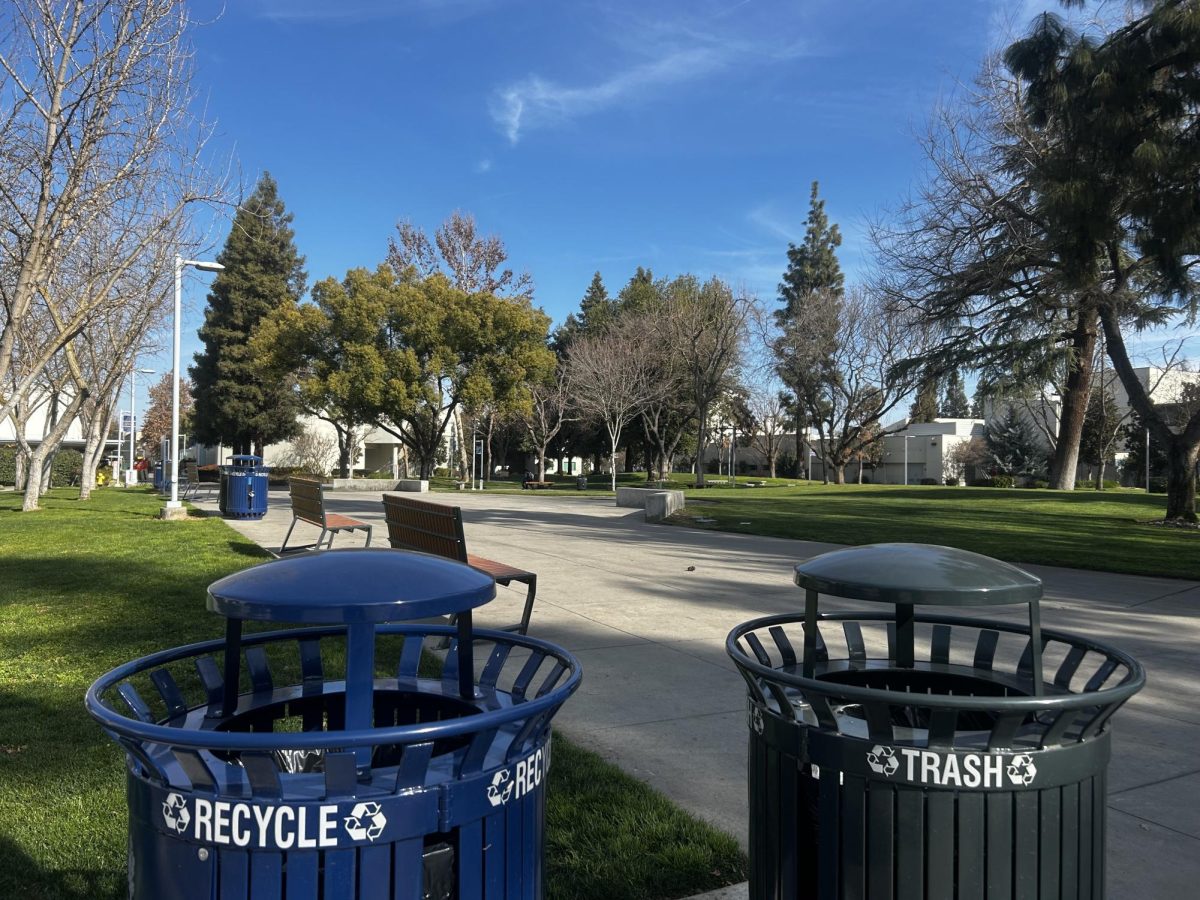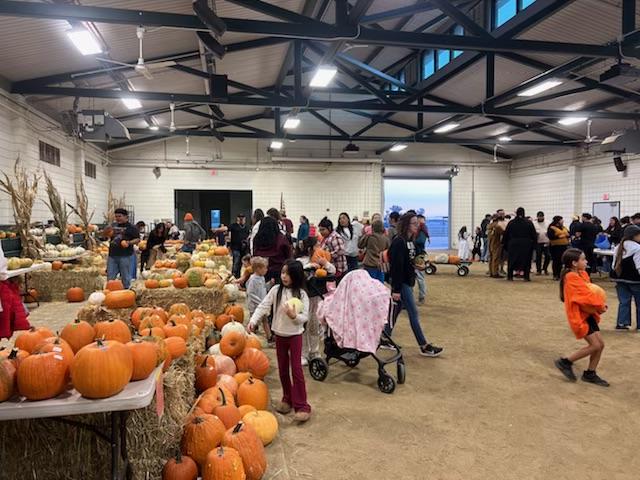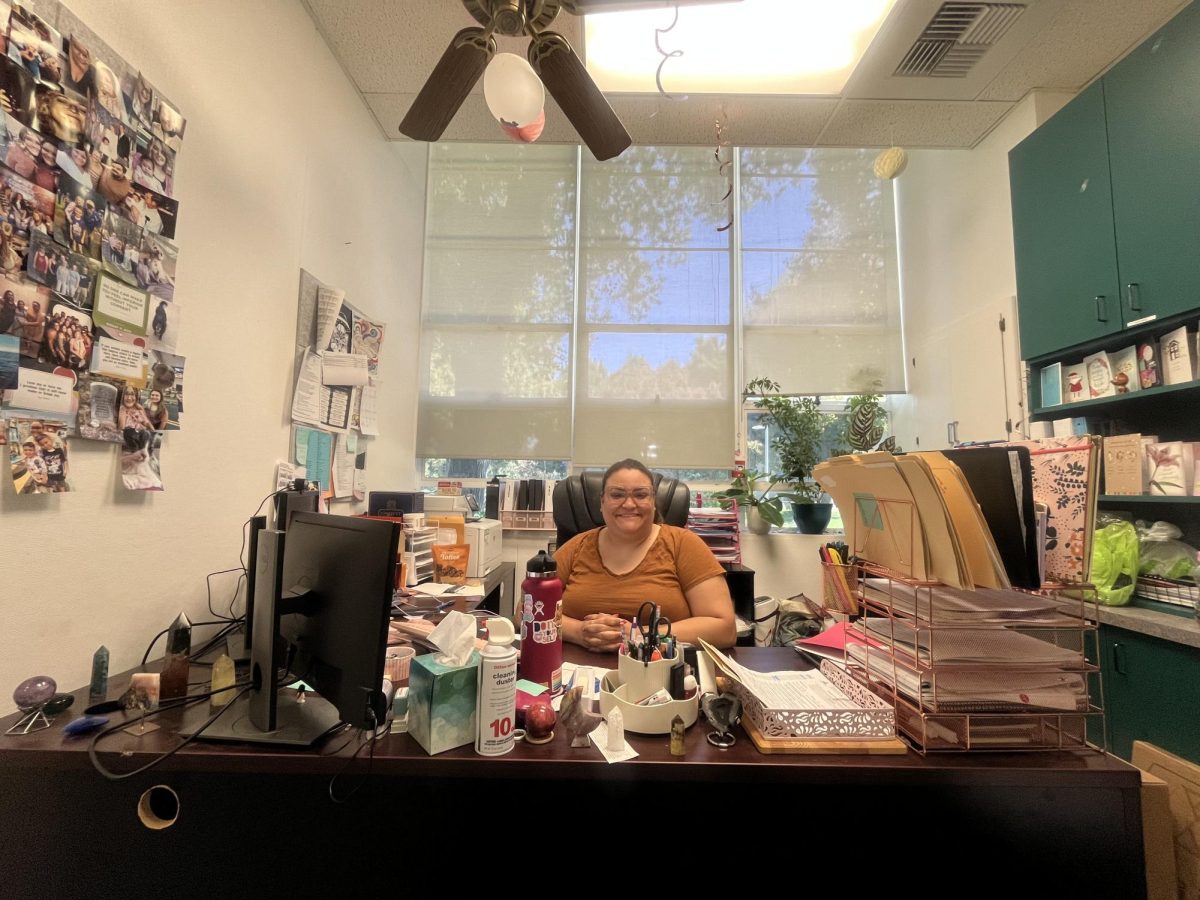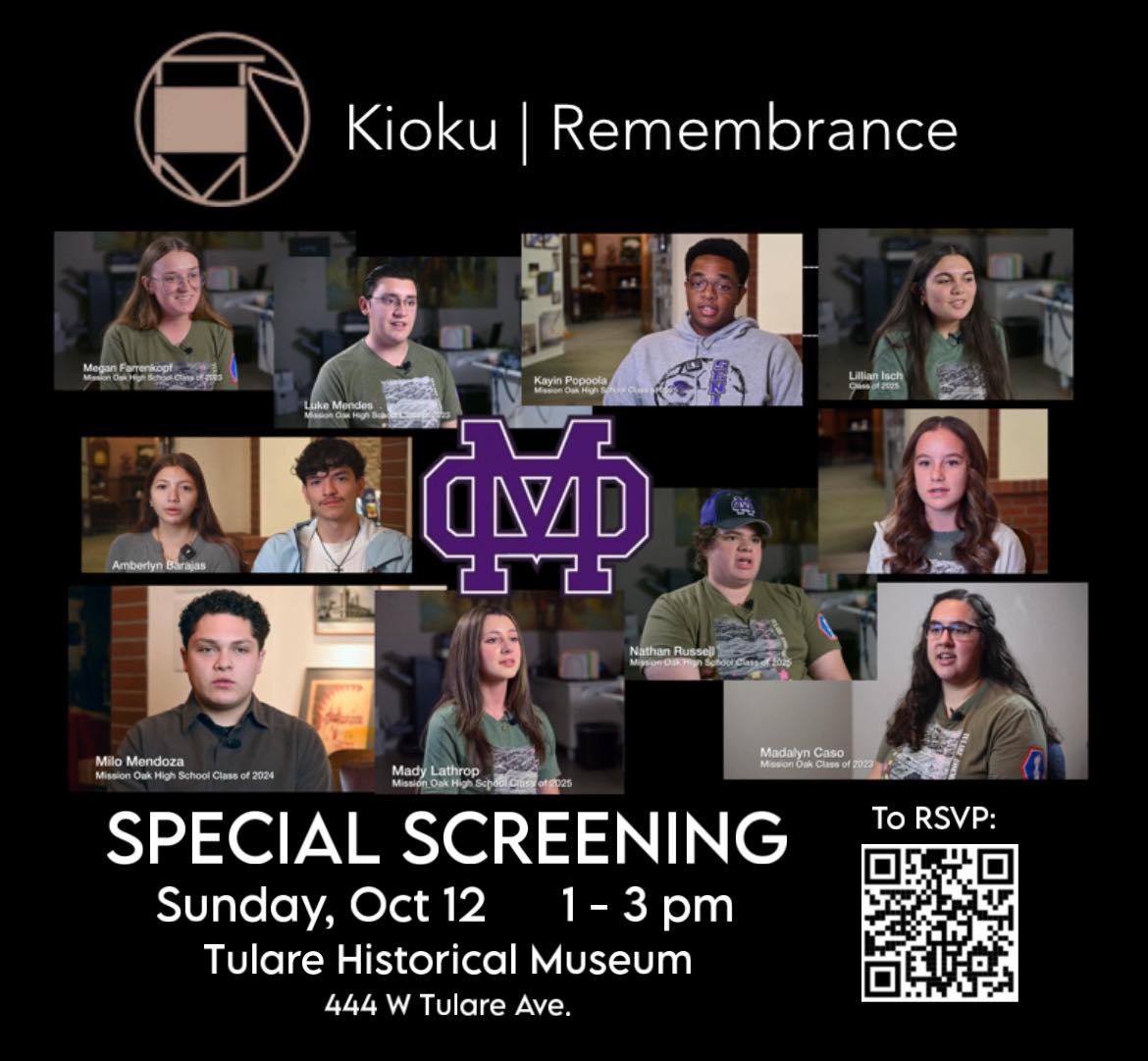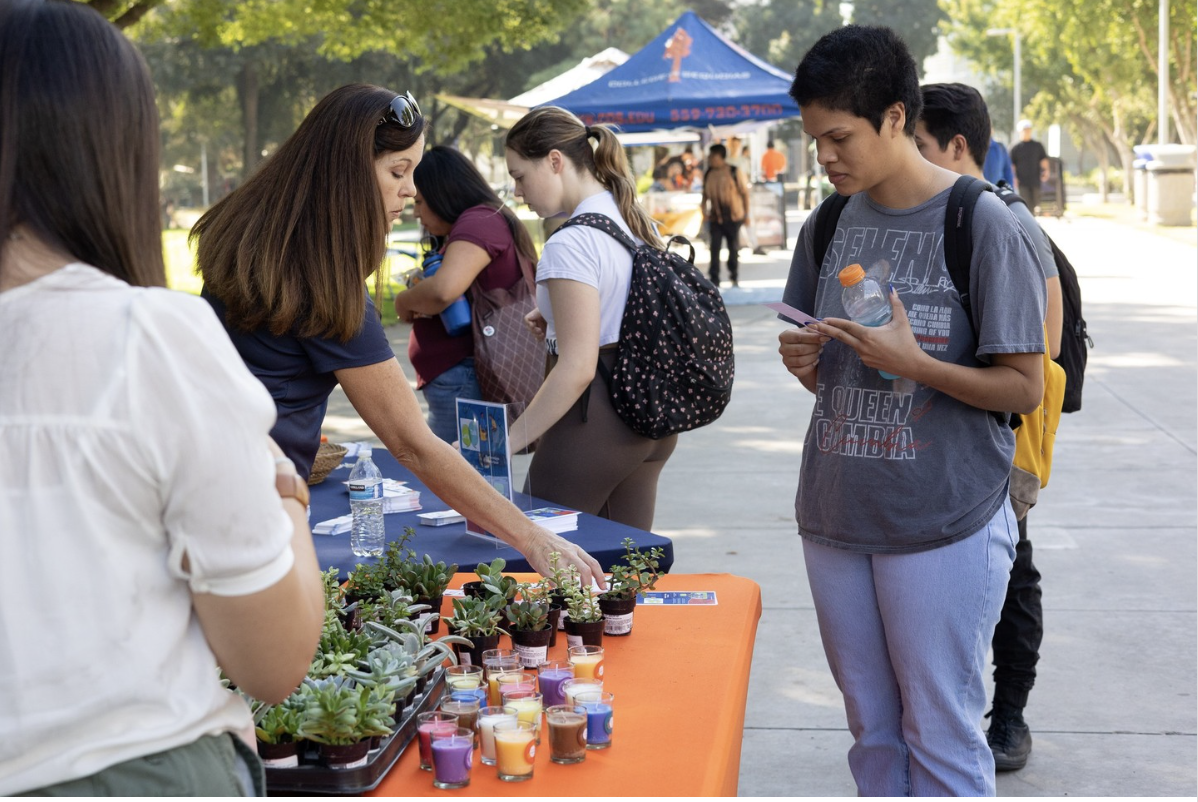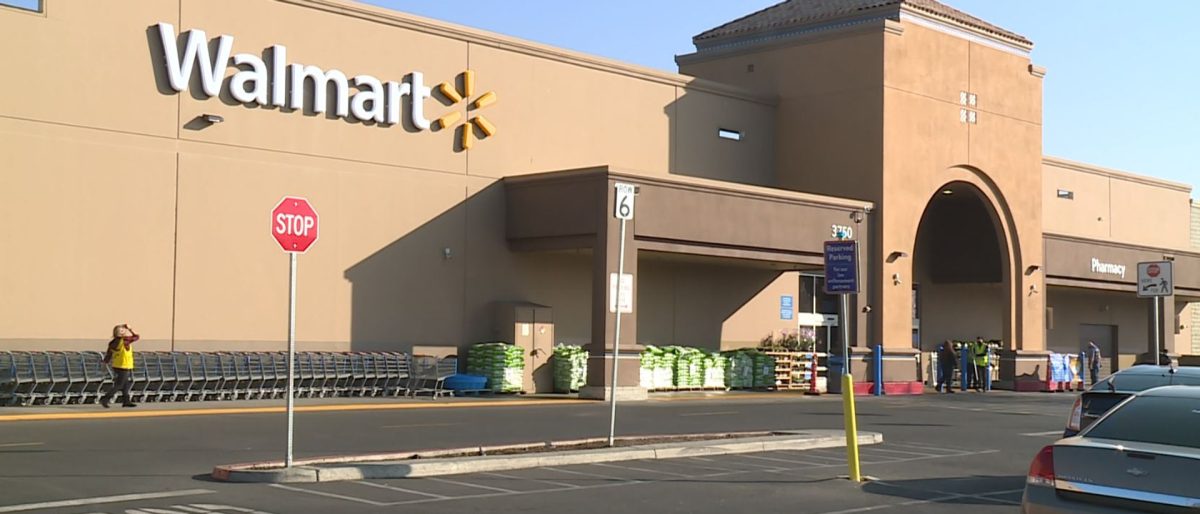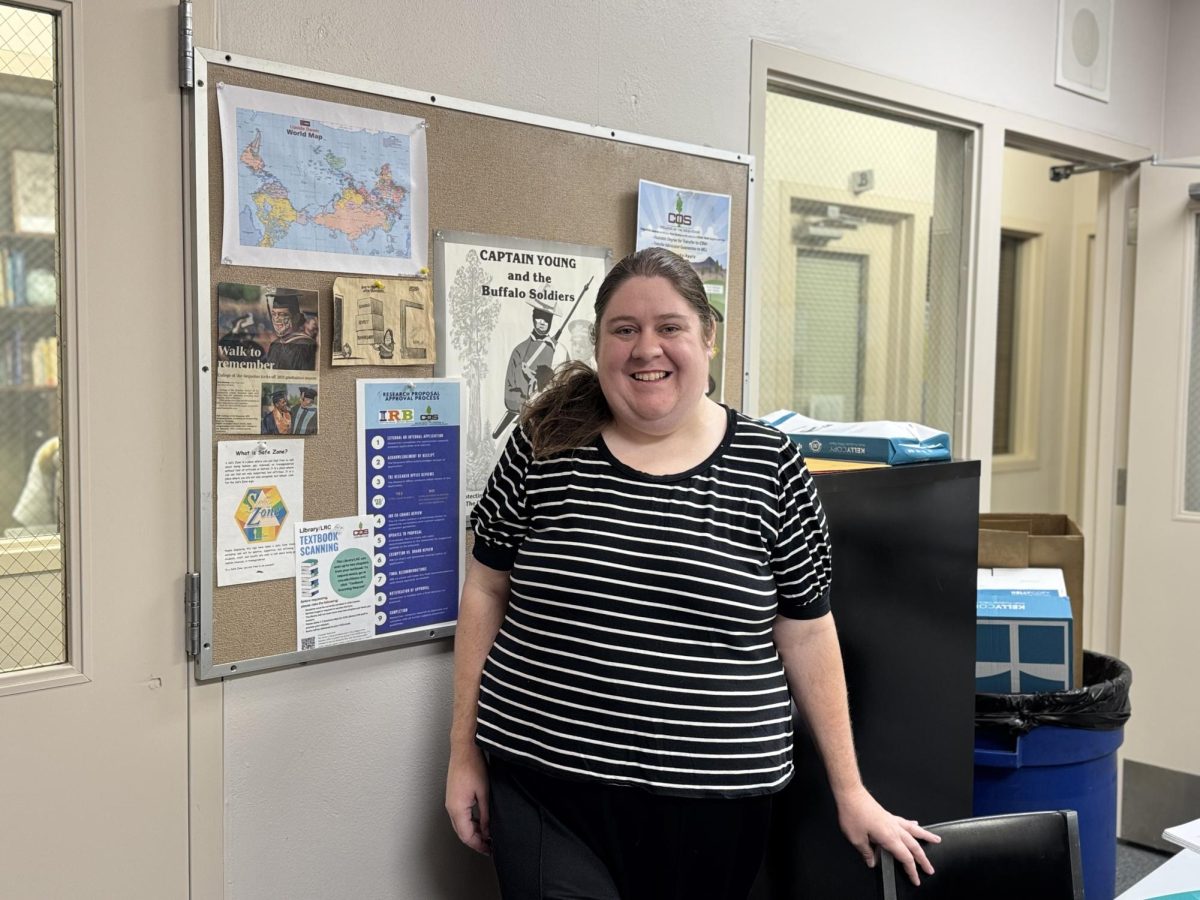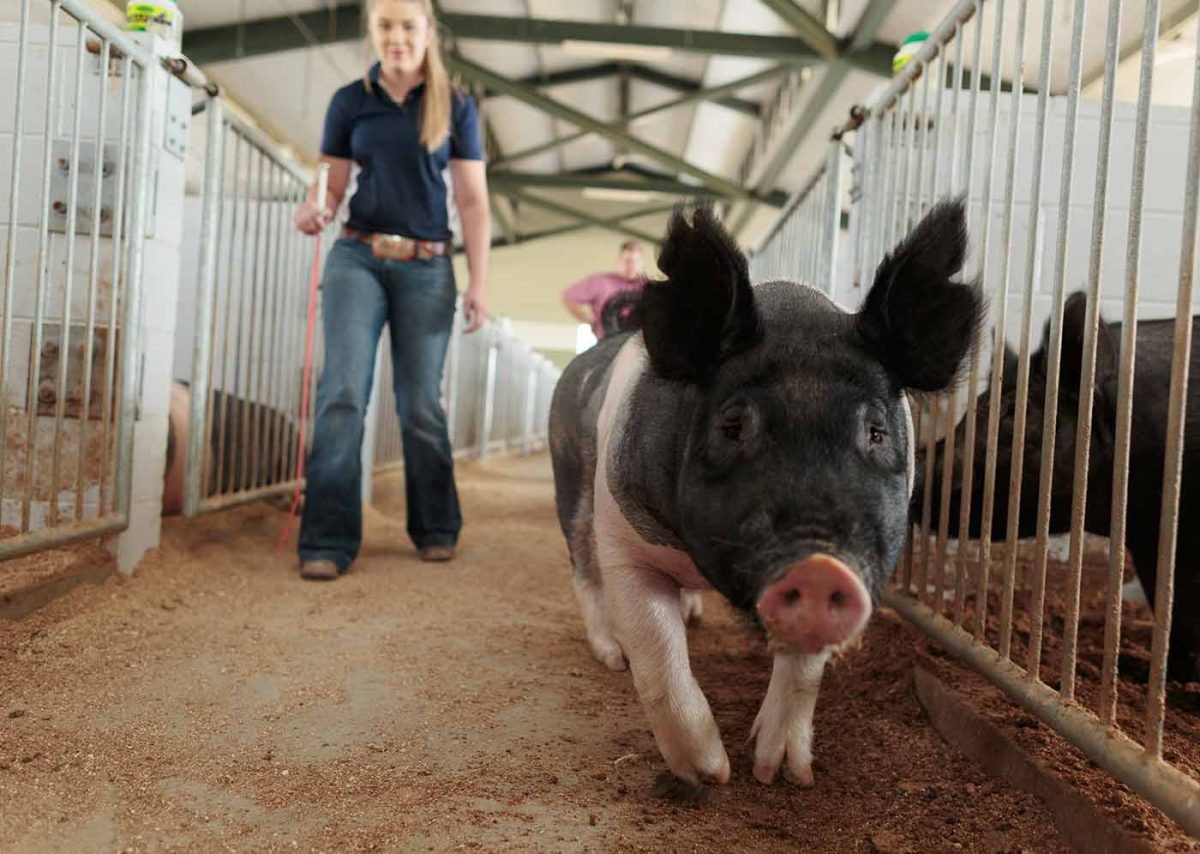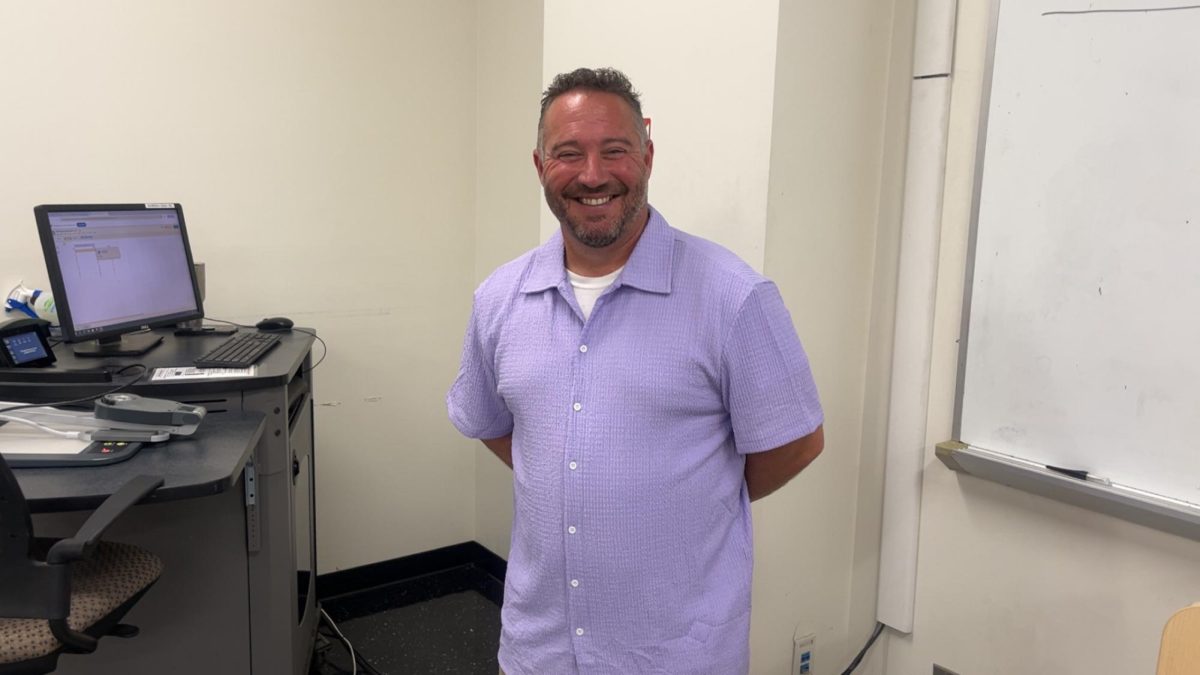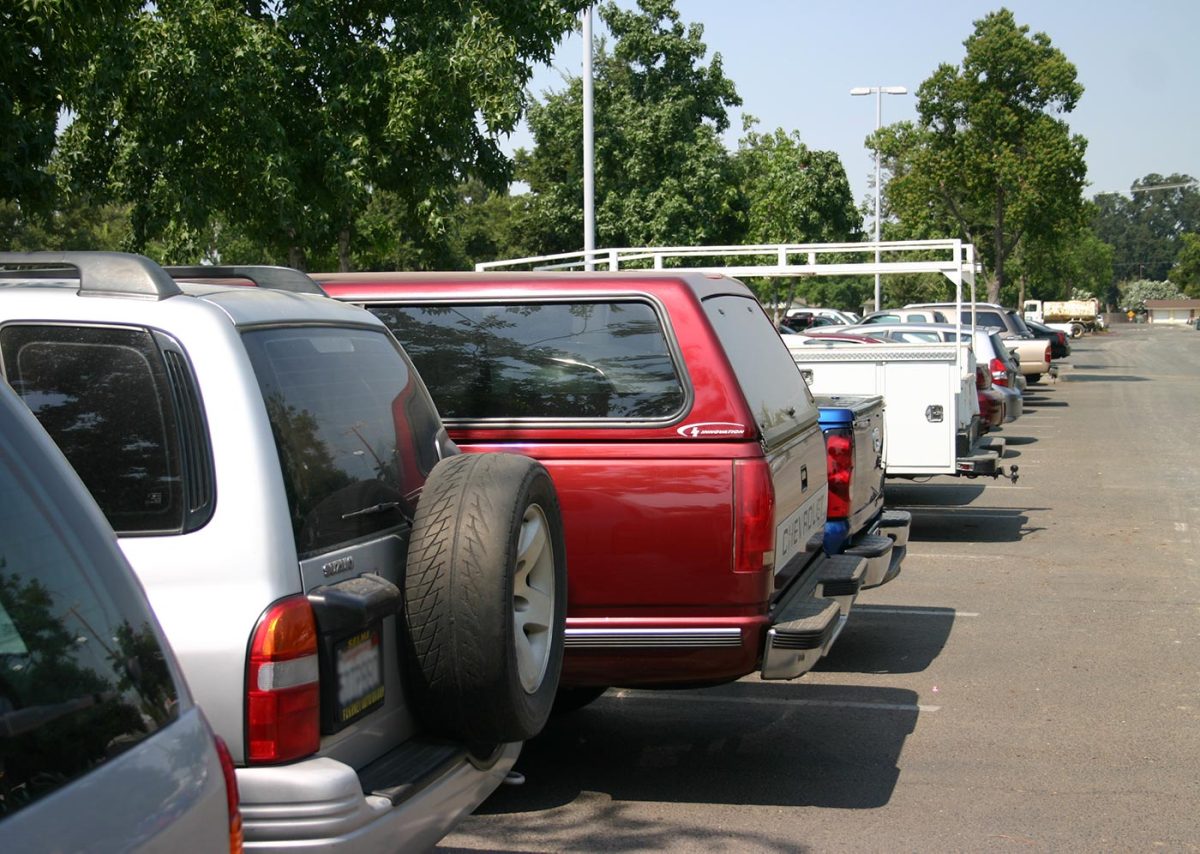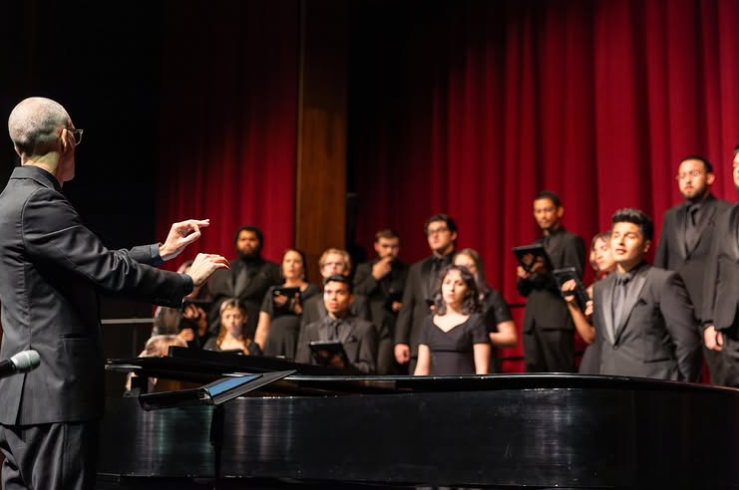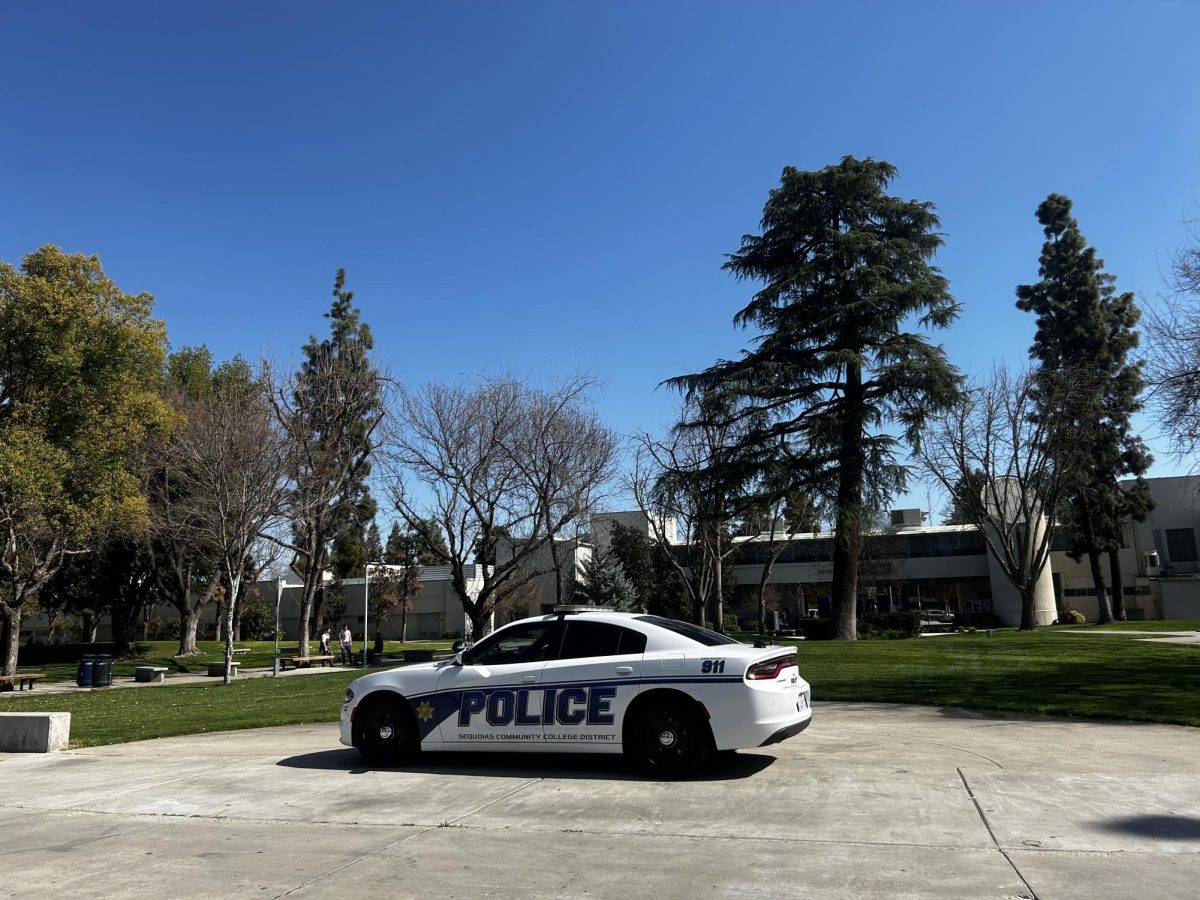As we step onto the College of the Sequoia campus, the most eye-catching feature is the scenery. The flowers are always in season, the grass is always green, no litter on the floors or walkways; our campuses are exceptionally clean. With the focus on classes and extracurricular activities, such as clubs or sports, we often overlook these features. On the other hand, we are so accustomed to this cleanliness that we do not even think twice about it. Nevertheless, these features are important to campus life. Imagine if the plants and grass were not maintained or if litter was not cleaned up. Our campuses would look drastically different, especially with the high number of people who pass through daily. It is safe to say that such conditions would be unappealing to students, staff, and visitors. While we may know of the individuals who play a key role in keeping our campuses clean, we are here to highlight the extensive efforts they put in across our three campuses.
Considering the College of the Sequoias, located in Visalia, the Hanford Educational Center, and the Tulare College Center, all three campuses together contain almost 800 acres and service more than 16,000 students. The College of the Sequoias website states that the Facilities Department oversees the planning, maintenance, and operation of these three campuses.
In the Groundskeeping Department, there are seven staff members, alongside the Manager of Maintenance and Operation, Mr. Erin Ferguson, whose focus is on maintaining the vascular plants on our campuses. This would include grass, flowering plants, and trees. At the Visalia Campus, 70 acres are maintained by three full-time and one part-time staff. They are responsible for areas such as the Sequoia Breezeway, the Quad, the Lodgepole Walkway, the Grind Coffee House and Patio, and the Baseball Field. The Hanford Campus has 24 acres that are maintained by a single full-time staff member. They cover the Education Breezeway, the Pavilion, and Amphitheatre area. As for the Tulare Campus, 38 acres are maintained by two full-time staff members who focus on Building A and the Parking Lot. The COS website highlights that staff members must have knowledge of plant material, climate, irrigation systems, seasonal maintenance, and fertilization to adequately and properly maintain these landscapes (College of the Sequoias, n.d.). Thanks to their dedicated efforts, our three campuses thrive with lush, vibrant greenery.
Although the groundskeepers do a magnificent job at making our campuses look lovely, the Custodial Service Department plays a key role in this as well. There are 20 staff members, alongside the Manager of Custodial Services, Mr. Luis Villanueva, whose responsibility is the daily cleaning of over 700,000 square feet of educational and support facilities on 128 acres (College of the Sequoias, n.d.). On the Visalia Campus, there are thirteen full-time and two part-time staff members. The Hanford Campus contains two full-time staff, and the Tulare Campus has three full-time staff members. As discussed on our school website, custodial tasks are as follows: “daily waste/ recycling disposal, litter removal, vacuuming, mopping, and floor scrubbing, wiping down surfaces, disinfecting, stocking supplies, cleaning cobwebs, washing windows and maintaining cleaning equipment” alongside “delivering and picking up furniture for events, as well as unlocking and locking district facilities” (College of the Sequoias, n.d.). It also discusses how floor maintenance and deep cleaning projects are performed over breaks. When it is broken down, it is easy to see just how much effort is put into keeping our campuses clean. Without all their efforts, it is hard to imagine what the three campuses would look like.
To gain further insight into the experiences and coordination efforts of the custodial staff, an interview was conducted with Mr. Luis Villanueva, who oversees all three campuses. Mr. Villanueva has worked as a custodian for approximately 30 years, with two and a half years at the College of the Sequoias and 28 years at the Fresno Unified School District. Additionally, he teaches janitorial classes at the Fresno Adult School, where he has been an instructor for seven years.
When asked about his coordination with other staff members, Mr. Villanueva emphasized the importance of communication: “Communication is always huge, and I have an open door. I give them [staff members] the directives. Sometimes, they cannot get it done because there is a class, but now it is on their radar. To ensure it gets done, I ask them to send me a text or email to communicate with me when it got done.” He explained that if a task cannot be completed immediately due to a class or meeting, the team ensures it is completed by the end of the day. Mr. Villanueva also mentioned his communication with the manager of Groundskeeping, particularly regarding the maintenance of areas like Tule, which has many pine trees. He stated, “For example, Tule has a lot of plant trees around the area. The pine leaves are all over, so I ask the manager if we can get this blown out or if it can be taken care of. And for the most part, they do, so it is just communication between managers.”
Regarding the areas of campus that require more upkeep, Mr. Villanueva highlighted restrooms: “Restrooms. They see a lot of traffic, and they get the most beatings.” He estimated that there are 16 student restrooms on the Visalia Campus. One of his staff members regularly checks the restrooms to ensure they are stocked, with touch-up cleanings during the day and complete cleanings at night. He also mentioned the challenges of dealing with graffiti, vandalism, broken dispensers, and occasionally sinks and urinals broken off the wall in the student restrooms.
While addressing the challenges he faces, Mr. Villanueva noted attendance as a significant issue: “When I first got here, they [staff members] looked burnt out. There weren’t too many substitute custodians.” He mentioned that there are currently two open positions, with a staff member on sick leave, resulting in the need to fill three positions daily. When asked what most people do not realize about the work he and his staff do, Mr. Villanueva stated, “I always say it is a thankless job. The things we go through throughout the day … we have to leapfrog. The rule of thumb, for us, is if we can clean it once a day, a complete cleaning, then that is a good thing.” He highlighted the difficulty of completing a thorough cleaning during the school day, which can last until or beyond 8:00 p.m., without disrupting classes or students studying.
Concluding the interview, Mr. Villanueva had kind words about his staff: “They are a bunch of excellent people. They are team players, and I have never seen so much support
amongst each other in all my years. This particular crew in the COS Custodial Department are great communicators, they work together, and they support each other. We are here to do a job, but life happens sometimes, and I see them come together to support one another, and that is a beautiful thing. It shows that we are not just co-workers; we are family, we are friends, and we are together. I think that is a good way to describe this group; they are excellent people, excellent workers.”
As one walks around campus, it is important to keep in mind the tireless efforts of both the groundkeepers and custodians. They work diligently to provide students with a clean environment, which significantly impacts and enhances their learning experience. As Mr. Villanueva mentioned, it is a thankless job. Nevertheless, they deserve recognition for their hard work and dedication across the three campuses. On behalf of the students and staff, we extend our heartfelt gratitude for their hard work.

